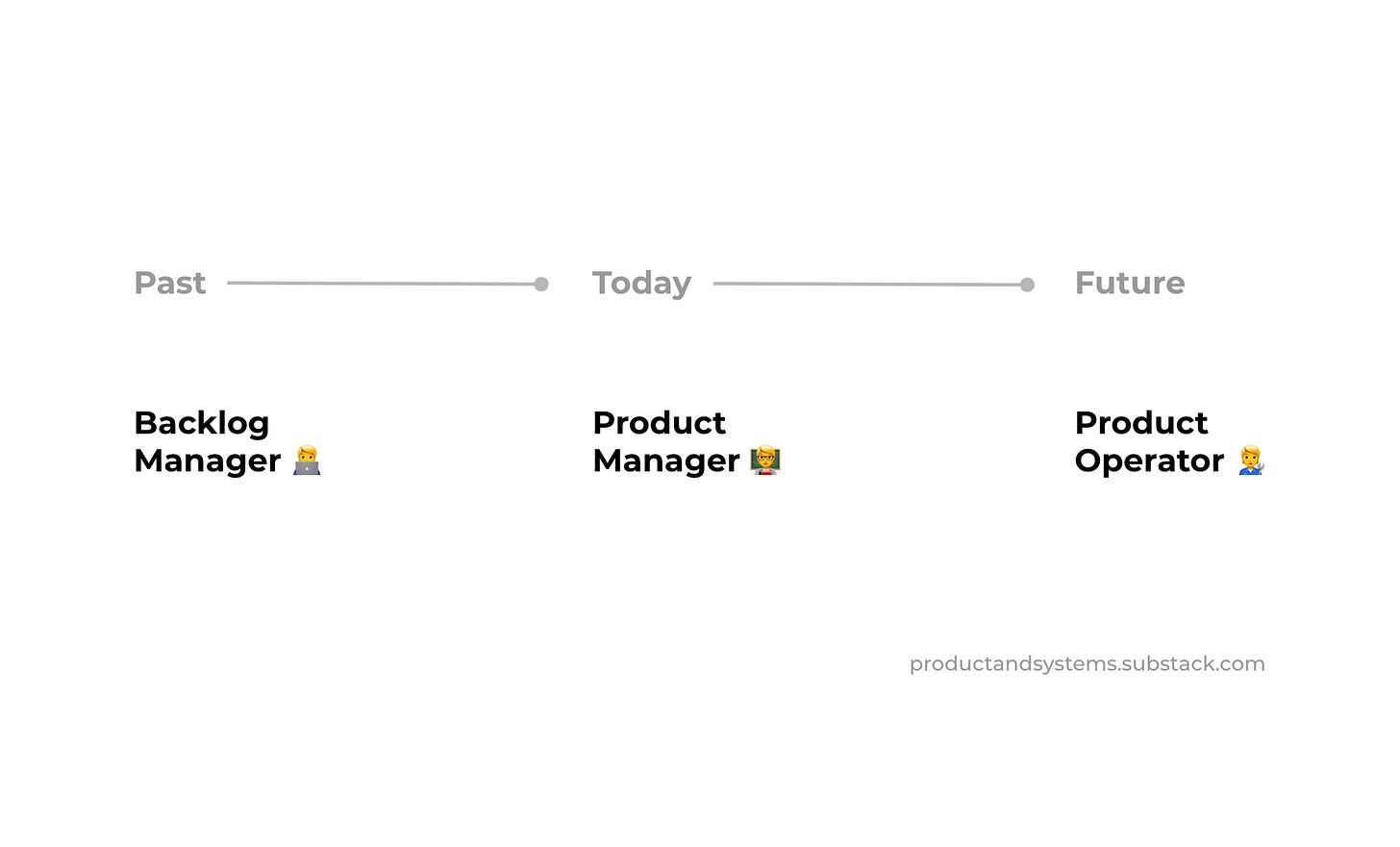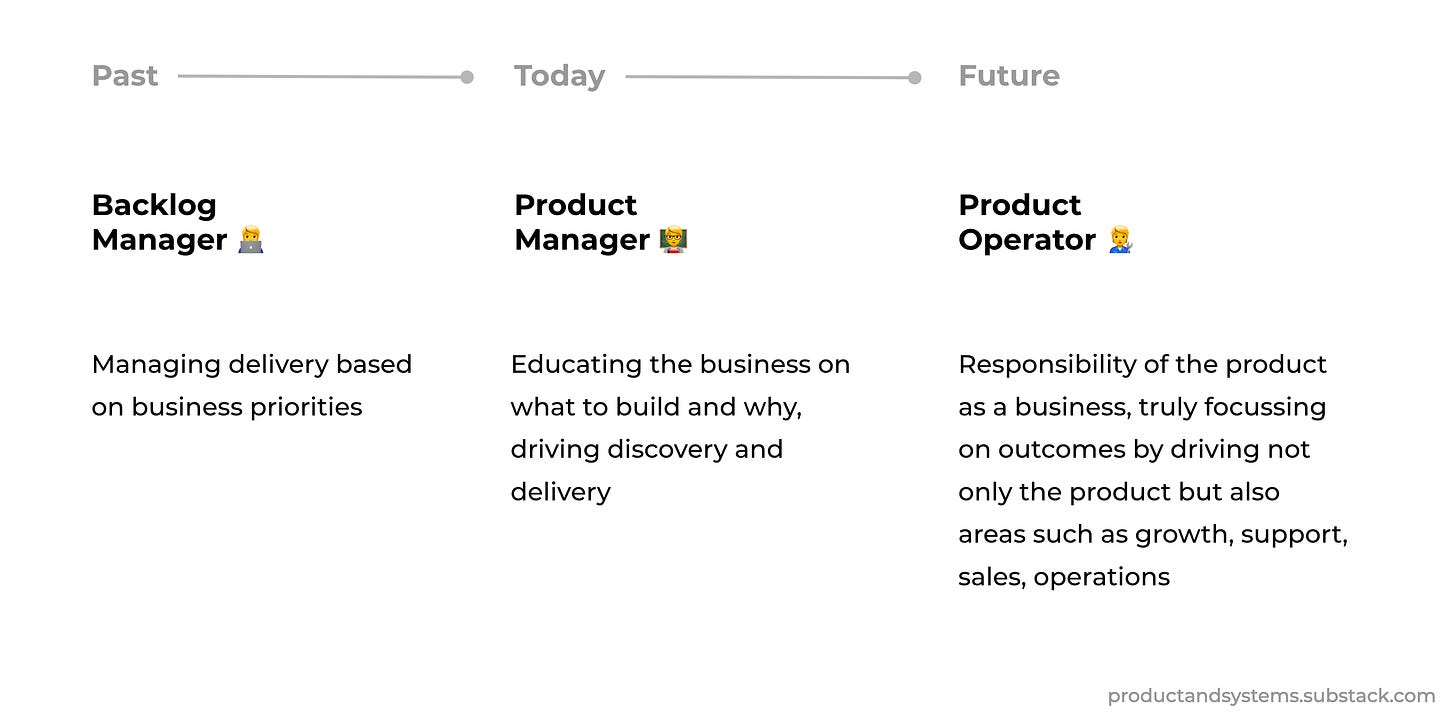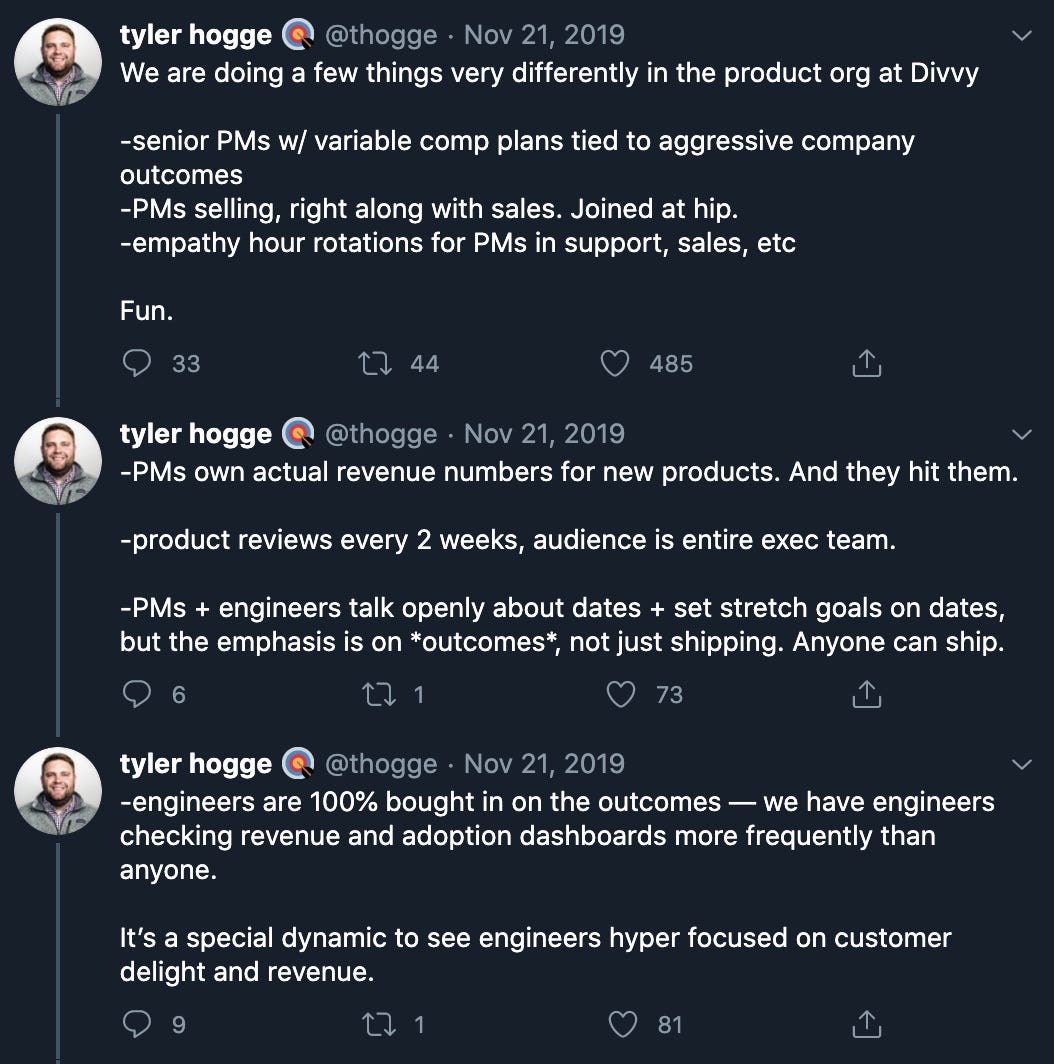The next evolution of Product Management
In this post I want to share how far we've come and which skills Product Managers will need to acquire next
A few years ago I attended Marty Cagan’s INSPIRED workshop. One of the moments that always stuck with me was when he asked the attendees who was currently in a Product Owner role. Around half of the roughly 60 people in the room raised their hands. In almost the same sentence he also told them that they should really aspire to become a real Product Manager. Oof.
The past
One of the key messages behind this was that most of us (and this was not just limited to Product Owners) were essentially glorified backlog administrators. The business would define the requirements of what to build, and the product owner would try to prioritise within this already prioritised list of solutions and drive the delivery.
“Someone does need to do this administrative work, but this is all about delivering output, and it’s really very little to do with what I am concerned about in terms of the need for true, consistent innovation on behalf of our customers. “
—Marty Cagan, Product vs Feature Teams
The current state
I love to reflect on this moment as it does make me realise that we have actually made monumental progress over the last few years. Every Product Manager I talk to these days shares how they try to help the business prioritise opportunities and problems to solve, before jumping into solutions. They not only drive delivery, but also have significantly more input in how businesses run product discovery and prioritisation.
The journey is certainly not over. While I have seen very strong adoption of more customer centric discovery processes, Product Managers still struggle to translate business needs into the right product metrics that should ultimately drive prioritisation. I covered this topic in a previous article.
We can still be very proud that we were able to elevate the importance of product management over the recent years. We shifted the focus from just managing Jira tickets to driving both discovery and delivery of our products.
The future 🚀
We’re certainly not at the end of our evolution yet (and nor do I think we ever will be). One of the main reasons I love being in this space is that the role and the environment keeps changing at an exhilarating pace.
What will it take for us to become even more real Product Managers?
With more competition and more choice for the consumer than ever, it’s not enough to just build great products and hope for organic growth or crazy tech valuations. Product Managers will need to become true operators - they need to focus on all parts that are connected with the product to create successful outcomes for the business.
The reason I chose the notion of Product Managers becoming more operational is that there will be a new expectation of the PM driving real results.
I recently tried to visualise this evolution of our role:
While the term operator is being slightly overused in the VC world these days - investors don’t want to see just the visionary founders, but are looking more and more for people who can actually operate in the weeds and scale the business - it is a strong trend that we should learn from.
The next generation Product Manager will have a clear understanding of:
how their product decisions and product goals contribute to revenue
whether the pricing model is viable
if the customer acquisition channels are working effectively
how we’re supporting our existing customers and
what levers the teams can pull to not only create a great customer experience but also a long term sustainable business.
While in the past a lot of these areas have often been labelled “outside of our control”, we will really need to show more ownership of all areas that impact the product experience and performance.
Here is a more detailed overview of the roles (links to a higher resolution slide as well if you want to share it):
I recently read an article that described Divvy’s “different approach” to product management. I actually thought it had some great points and wasn’t that far fetched at all. Their VP of Product and Strategy argued that PMs should have more skin in the game and focus on outcomes more than outputs. This is something I fundamentally agree with and we’ve been preaching in the product world for a while now.
It seems like this approach is slightly skewed towards the PM’s involvement in sales, which makes sense when you see Tyler’s strong skills in this area, but the underlying message is clear: the PM should not only focus on shipping features, but contribute to the ultimate success of the business.
My vision is that this will mean Product Managers will get more deeply involved with the growth team - are we experimenting with different acquisition avenues, are the customer acquisition costs paying off, are we getting the right types of long term customers?
It will also mean treating the support experience as a core part of the product experience. Or getting more across sales activities - what are we promising to our customers to get them on board, are their expectations met in the product or are we creating short term gains that may lead to additional churn?
And lastly but probably most importantly - the numbers. I absolutely love seeing recent calls for PMs to be able to build full business model plans, pricing structures, and thorough reports on growth, revenue and costs. Or like this article from Blaine Holt beautifully highlights: if you want to progress your product career you need to master “not just the simplified canvas but the meaty excel sheets.” 💪🏼
Final 2 cents
I’m personally extremely excited for our future. While we’re just starting to get more confident in making better product decisions rather than accepting waterfalling requirements, the next challenge is already at our doorstep. We will play a fundamental role in building product businesses.
And while historically CFOs tended to fill in whenever a CEO resigns without an immediate successor, I imagine in my wildest dreams how the future go-to will be someone who truly knows all parts of the product and the business.
Enjoyed this article and don’t want to miss future publications from Product and Systems? 🤗
I am also proud to share I have launched my first ebook to help coach Product Managers on better product analytics practises, a key skill for the future of the Product Manager role! The Insights Driven Product Manager shares practical frameworks and exercises on how to track less and get more insights from data to make better product decisions. A great coaching resource you can share with your PMs if this is a gap in your team:





